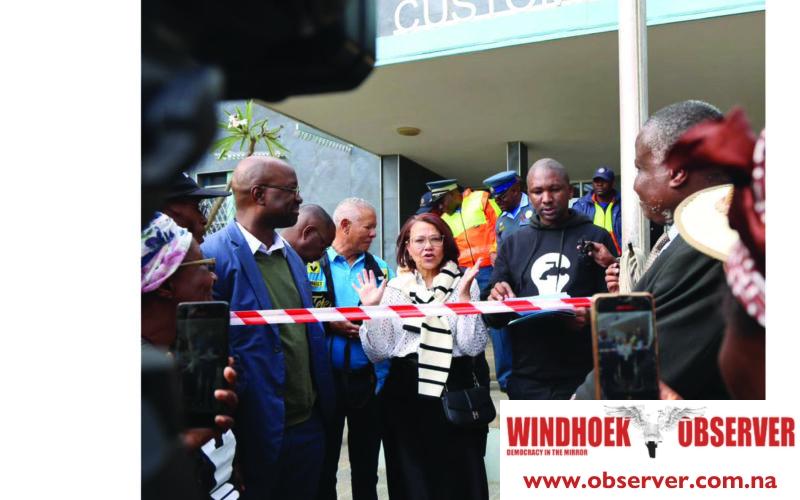Hertta-Maria Amutenja
Families relocated to Farm 508 behind Goreangab, known as Okapale, have threatened to return to Otjomuise if the City of Windhoek does not address unsafe and inhumane living conditions at the relocation site.
In a petition submitted to the City of Windhoek (CoW) Council, mayor, and chief executive officer, the Khomas Rate Payers and Residents Association stated that the city plans to move more households to the area on 31 July without proper services in place.
The petition, signed by 387 affected households, warns that if their concerns are not addressed by 31 July, they will move back to Otjomuise, where they believe there are better living conditions.
“If we are not satisfied with what you are giving us on 31 July, we are going to relocate the people back to Otjomuise, where there are better open spaces. We will relocate the people any day from 1 September 2025,” the petition reads.
The families are concerned about several issues, including the absence of police services, poor road access for emergency vehicles, lack of street lighting, and no access to shops. The area also lacks mobile phone reception. “There is a mobile police station, but no officers. It takes three days for the police to respond to complaints. We have already lost a life while waiting for the ambulance,” the petition states.
The petition also questions why the city is expanding into new areas without addressing the needs of older informal settlements such as Havana, Okuryangava, and Ongulumbashe. The group suggests that Groot Aub should be separated from the City of Windhoek to allow it to operate independently.
The relocation to Farm 508 followed heavy rains in January 2025, which displaced hundreds of residents from low-lying informal settlements, including parts of Otjomuise and 8ste Laan. Over 300 households have already been moved to the area. In April 2025, the CoW and its partners confirmed that some services had been rolled out at the site, such as prepaid water taps, Amalooloo dry toilets, a prefabricated clinic, and a newly established primary school. City officials also reported that roads had been marked, and some are under phased development, depending on available funds.
However, residents argue that these measures are insufficient. The petition points out that only two water taps are operational, and most people still lack lighting, proper roads, or safe access to basic services. The petitioners also raise concerns about overcrowding, stating that “two people sit on 200 square metres,” which they believe is a repeat of past mistakes made in informal settlements.
While the CoW had announced that over N$700 million in government funds would be used to formalise informal settlements, the petitioners argue that this financial support must be matched by meaningful action from the CoW. They have demanded written responses and commitments before the scheduled relocation on 31 July. If their concerns are not addressed, they say they will begin relocating themselves back to Otjomuise starting 1 September.
Efforts to get a comment from the City of Windhoek were unsuccessful by the time of publication.




